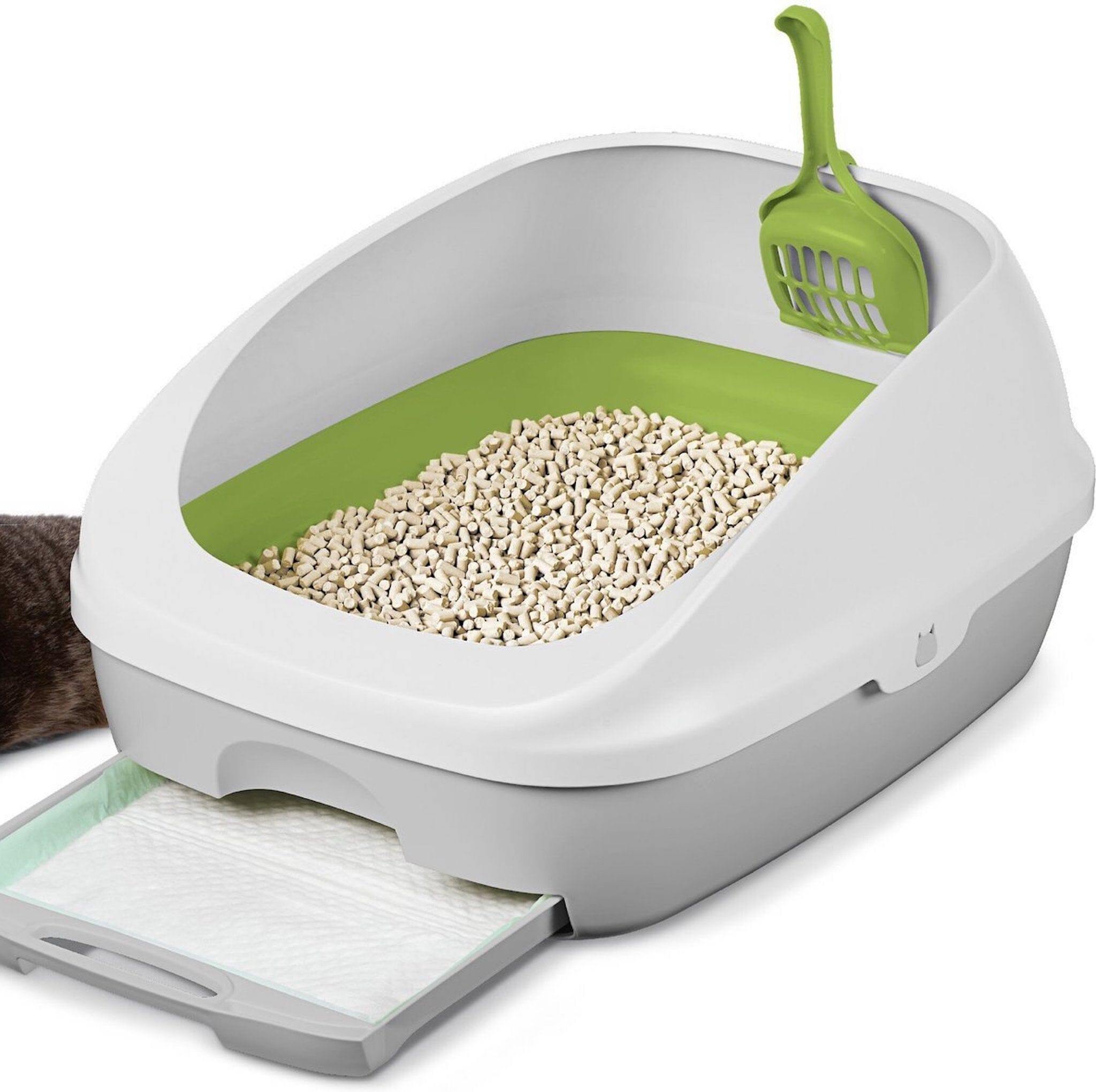Finding the right litter can be overwhelming. With so many different types, all touting a myriad of benefits and claims, it can be hard to decide which one is best for you, your home, and most importantly, your cat.
Cat Behaviorist Nicole Van Andel breaks it down for us and sheds some light on what makes a litter really great.
Would you please separate which litter "types" or "features" are for the cat's direct benefit, as opposed to those that are really for the human's convenience?
Cats have an instinctual desire from their wild ancient ancestors to eliminate in a fresh, odourless and untouched area, specific to their environment. Since then, humans have altered these behavioural instincts by introducing a wide range of various types of in-house litters, which nowadays is often chosen based on our own personal preferences, instead of that of our beloved cats.
So with all that in mind, the most important aspect when making the decision on what litter type to choose is to select one for the cat(s) personal well-being; it should be that of a safe, non-toxic, odourless option. Red flag ingredients include synthetic chemicals like sodium bentonite (an agent that clumps moisture) and silica (a known carcinogen when inhaled).
To learn more about these ingredients, check out our article comparing clay litter and tofu litter.
Is scented litter safe for cats?
In general, most cats are sensitive to strong scents. Their nose cavity contains approximately 200 million olfactory cells (whereas humans have half that) and they rely on their scent for much of their daily decision making (about food, territory, exploration, potential danger and where to eliminate etc.) so a litter that is naturally and lightly scented or fragrance-free is a considerable benefit.
Litters with synthetic fragrances, concentrated essential oils, and dyes added do not actually abolish the cat's waste smell but overpower it, resulting in an even stronger scent for the cat. And to make things worse, often a household that has two cats will only have one litter box that they are forced to share. The rule of thumb is that your number of litter boxes per household should equal the number of cats plus one (1 cat = 2 litter boxes, 2 cats = 3 litter boxes etc).
Is there a particular type of litter that is best for a kitten?
Kittens under the age of 8 weeks are even more curious than their adult versions, they should be introduced to a non-clumping type, as they may decide to have a small taste of their litter. Exploring with their mouth is a big part of a kitten's daily routine and learning experience, and this doesn’t couple well with clumping litter which can cause blockages in their intestines. With kittens in particular, above or below 8 weeks, it’s important to keep an eye on their litter use and ensure they aren’t ingesting it.
Credit: Instagram @buckminsterscatcafe
What about an elderly cat?
Elderly or geriatric cats, if suffering from arthritis or other form of joint/tissue pain, have a more difficult time cleaning their paws. As such, they will benefit from using a litter that doesn’t attach to their paws or track easily.
Soybean-based formulas work great for this because they are generally softer on the paws and too big to get stuck, whereas smaller granules of clay, corn, gel crystals, silica, sand etc. can be quite painful when getting wedged in between the toes and can irritate the skin.
If there is one litter "attribute" that is worth spending more money on it, what would you say that it is?
To simplify confusion in determining which litter type is most beneficial for our cats, the primary consideration should be the main ingredient and added ingredients, much like the way we look at processed foods.
The more the ingredients and the more added “unknown” components it has, the more undesirable effects it may contain.
It pays off to spend an extra few dollars on a good quality, cat-and-earth-friendly litter, rather than pay the cost of vet bills caused by cheaper litter options that ultimately aren’t great for your cat’s health.
If you'd like to avoid scouring the Internet for a litter that suits your needs, consider Really Great Cat Litter. This flushable and compostable formula is thoughtfully made from soybean byproduct.
It features a total of 5 understandable, compostable, clean ingredients that just get the job done. It's totally free from any artificial fragrances, dyes, or other toxic ingredients. Plus it's low tracking and 99% dust-free, meaning the days of dusty paw prints and loose litter crumbs are a thing of the past.
Try Really Great Litter today and let us know what you think!









Article has 0 comments
Leave a comment Cancel
Leave a Comment